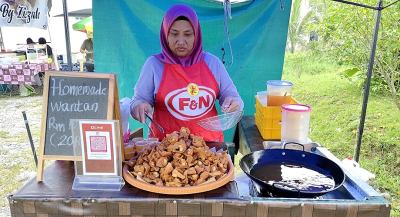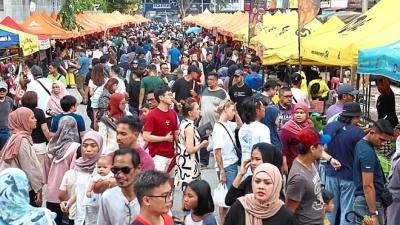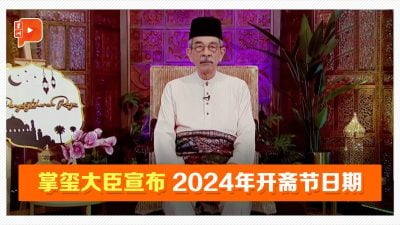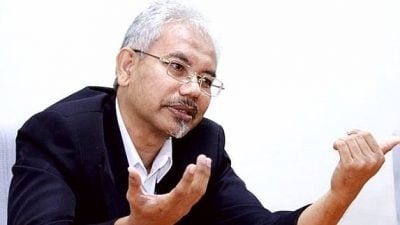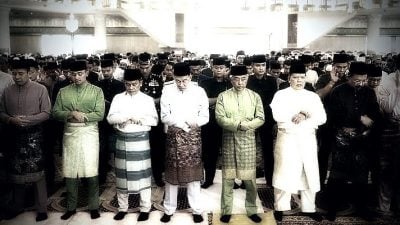The transport ministry should set a rational ceiling price based on the cost of operation instead of allowing airline companies to arbitrarily dictate the prizes according to market demand.
Prime Minister Anwar Ibrahim did not make any instruction during a special press conference on Tuesday on the issue of insufficient seats and exorbitant air tickets during the coming Hari Raya holidays, as anticipated.
He earlier said he had received feedback from university students that air tickets were too expensive and as a result, many of them were unable to return home to celebrate Raya with their families.
As Raya is just around the corner, any discussion with airline companies to lower airfares or increase their flight capacity would have been to late now.
The furthest city from KL is perhaps Tawau which is 1,850 km away. It is therefore impractical to take a boat and flight is the only option for people intending to travel between both cities.
During the normal days, return air tickets from KL to Tawau or any city in East Malaysia should typically cost between RM500 and 1,200. However, during the festive season, the airfare could easily go out of control.
From April 18 to 20, a one-way flight ticket from Sandakan to Kota Kinabalu could cost RM700, while an AirAsia KL-Tawau one-way “business class” ticket could fetch a whopping RM3,138! As for Malaysia Airlines, a business class ticket for the same sector is between RM2,031 and RM4,982. And you are not flying to London, Paris or New York but within your own country!
Prices for a budget airline’s ticket will fluctuate according to the demand. A return air ticket to Taipei can be anything from RM600 to RM1,500.
Such “flexi fare” strategy is effective in getting travelers to fly to destinations they don’t normally visit by offering cheap airfares due to poor demand, a tactic to cut down the ratio of vacant seats.
Even full-service airlines are now copying the strategy. As a result, it is not uncommon for airfares to be two to three times more expensive in peak travel season.
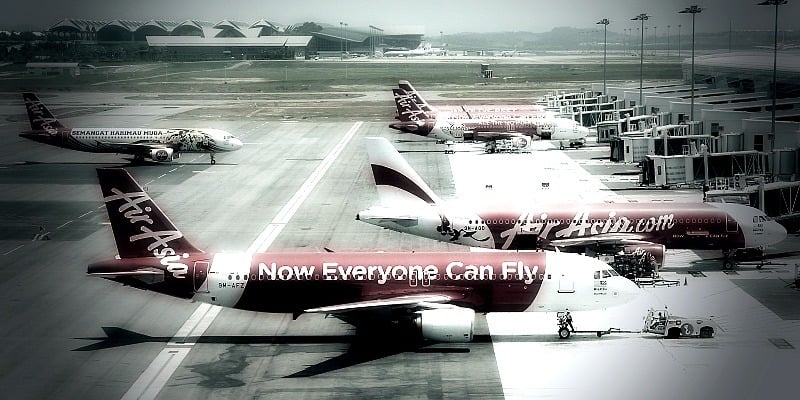
As air travel is a form of public transportation, its cost should be controlled, just as the prices of rice, sugar, flour and eggs.
We understand that airline companies have a high overhead cost and adjusting the airfares upward during peak travel season is acceptable. But don’t you think we need to set a ceiling price for the airfare of a specific sector?
The transport ministry should set a rational ceiling price based on the cost of operation instead of allowing airline companies to arbitrarily dictate the prizes according to market demand.
The government not only should set a ceiling price for domestic airfares but also allow more airline companies to operate certain highly popular sectors during super peak season, instead of letting a handful of companies to monopolize the market and dictate their prices.
Prior to this, deputy education minister Lim Hui Ying had arranged chartered flights for school teachers to go back to their hometowns to celebrate Chinese New Year. Now that a precedent has been set, the transport ministry can also emulate, so that Malaysians can purchase their air tickets home at more reasonable prices.
If this problem is not resolved, many people will continue to be denied the opportunity to fly back to their hometowns to celebrate festive holidays. Airfares between East and West Malaysia are even beyond the affordability of many in the T20 income group, let alone ordinary wage earners. An entire family’s return air tickets will easily offset their whole year of savings!
Kinabatangan MP Bung Moktar Radin has hit out at air companies for “sucking the people’s blood.” He has urged the transport ministry to liaise with airline companies in order to increase flight capacity and lower air ticket prices so that East Malaysians working in West Malaysia get to fly home to celebrate Raya with their families.
ADVERTISEMENT
ADVERTISEMENT






